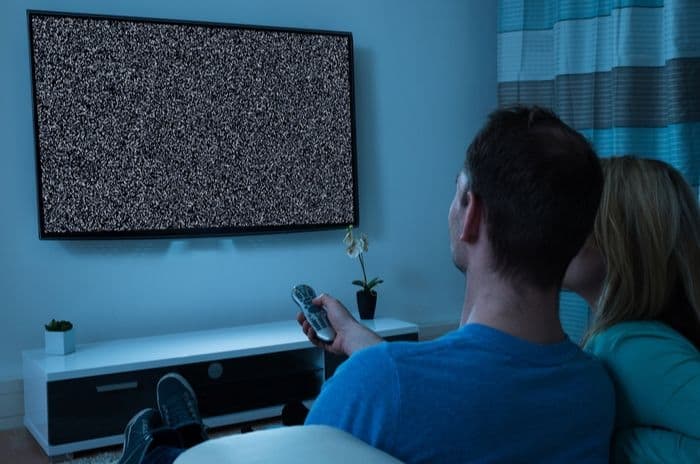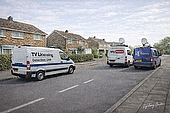It's true: bad weather such as strong winds, heavy rain and snow can affect TV and broadband services delivered through satellite, including by larger providers like Sky.
Although it's rarely an issue for most people, if it does happen the disruption can be unexpected and seem out of our control.
We take a look at why it happens, whether it should put us off satellite services, and some simple ways to ensure that bad weather problems are kept to an absolute minimum.

What's the problem?
There are two potential problems to consider.
The first is that bad weather can physically damage a satellite dish, either temporarily or over the longer term; the second is that some types of bad weather can disrupt the satellite signal.
Snow is the worst kind of weather when it comes to possible disruption to satellite TV or broadband services, although heavy rain and winds can also have a detrimental effect.
That's because snow can collect on the dish - which can move it out of alignment with the satellite, resulting in interruption to our TV or broadband in the longer term.
If we receive our TV via satellite and this happens, it may be that only some channels are affected: viewers will typically experience that "blocky" effect which mashes up the sound and picture.
If the weather is particularly severe we might also see the dreaded "No satellite signal is being received" message.
Avanti, a provider of satellite broadband packages, explain that signal itself can also be affected in severe weather conditions.
It's all down to the weakening of the satellite signal, Avanti say "as it passes through raindrops, fog, heavy cloud cover or high winds".
In a nutshell, rain and other heavy weather conditions can absorb energy from the signal, which in turn lowers the quality of the satellite service.
Should it put you off?
So should bad weather put us off satellite services?
In general, no.
Even in the wilds of Scotland, the UK climate is temperate enough for satellite dishes to cope with most weather conditions thrown at them, and satellite TV and broadband providers already take steps to combat the problem as much as possible.
The likes of Avanti and Tooway use systems that automatically increase power levels to counteract any loss of signal or speed of connection, for example.
Meanwhile the satellite dishes used by Sky to deliver their TV services come in two different sizes, because in some areas the bigger surface area is needed to give the satellite signal the best chance of reaching its destination.
- Southern England: 39 x 53 cm
- Cornwall, Northern England, Scotland and Wales: 58 x 74 cm
So on to the practical stuff. Here are a few tips for checking and repairing a service if we think it's been affected by bad weather.
Checking and fixing bad weather faults
So on to the practical stuff. Here are a few tips for checking and repairing a service if we think it's been affected by bad weather.
Sky box check
It's worth checking whether it's the weather causing the problem, or a technical fault on the broadcaster's side. Open the settings menu on the Sky set top box and look for the option to check the signal status.
If both the signal strength and quality indicators are showing, then the fault is with the broadcaster.
If not, then unfortunately the problem is with the dish or box.
Realigning dishes
Those experiencing persistent problems may need to realign their satellite dishes.
This is particularly likely if a dish has been placed on a high pole to get a good line of sight, or in a position that makes it particularly vulnerable, such as close to trees or under the eaves of a roof.
Satellite dishes placed on poles can move because of the lack of shelter and solid mooring given by walls and roofs - but those near trees and under roofs can collect snow and rain more easily, both on the dish and around the connection into the home, leading to disruption to the signal.
Although it's possible to realign a dish ourselves it's advisable to get a professional engineer - whether from our satellite provider or an independent specialist - to come and do it.
Another problem?
The BBC must look into persistent problems with television signal and they can give guidance on what could be causing the problem and how to fix it.
They can also get the communications regulator, Ofcom, involved if there's a really tricky problem.
To get started, fill out this diagnostic tool on their website.
They're unlikely to be able to help much with weather issues, aside from potentially diagnosing that as the cause, however.








